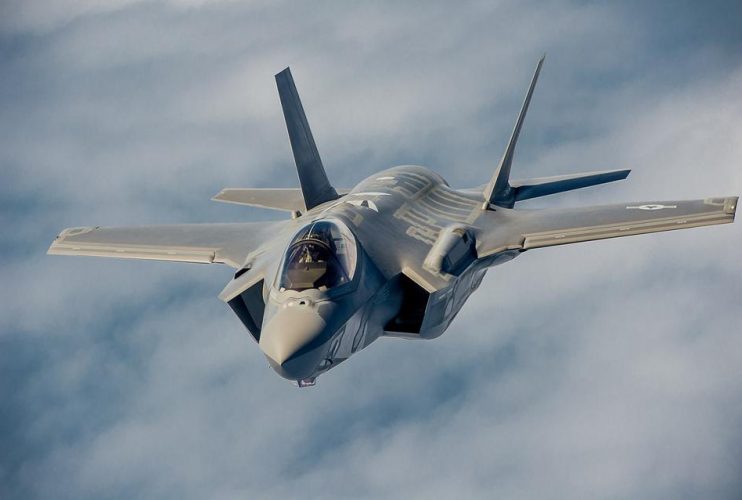By J.M. Phelps (One News Now)
The possible sale of F-35 stealth aircraft to the Qatari regime could have dire repercussions for the United States and its allies – should the Middle Eastern country decide to share tech info in a backdoor deal.
OneNewsNow spoke to Dr. Jonathan Spyer, executive director of the Middle East Center for Reporting and Analysis (MECRA), about the potential sale of the high-tech combat aircraft to a number of foreign actors. The F-35, produced by Lockheed Martin, is a “state-of-the-art stealth aircraft,” and Spyer indicates the sale of the aircraft is currently competing with other systems produced by Russia and China.
“Naturally,” the British-Israeli journalist says, “Lockheed Martin and the United States want to sell it to as many customers as they can.” And there are many countries in the Middle East interested in buying, including Israel, Turkey, United Arab Emirates (UAE), and Qatar, he adds.
“[With these opportunities], there are geopolitical considerations that enter and cut across purely commercial considerations,” Spyer explains. In the case of Turkey, the purchase has been put on hold because the country chose to purchase the Russian S-400 Triumf air defense system. That acquisition has been deemed “unacceptable” by the U.S. State Department.
In a second geopolitical decision, the normalization deal between Israel and the UAE – the Abraham Accords – included “the proviso that the UAE would get to buy the F-35,” according to Spyer. In a multibillion-dollar deal, the country is poised to purchase 50 stealth F-35 fighter jets.
At the same time, Spyer notes, the United States is committed to guarantee Israel’s qualitative military edge in the region.
“[The move to sell F-35s] to the UAE appears to cut across [that commitment] and go around it by compensating Israel,” the Jerusalem Center for Strategy research fellow indicates. The provision appears to come in the form of the F-22 Raptor system, another highly advanced aircraft.
Finally, with regard to Qatar, Spyer admits the Middle Eastern country “has ambitions to purchase the F-35, [and] has put in a formal application to purchase the system.” However, he reveals a number of concerns are being expressed about that potential sale.
“Qatar is a country which does business with and actually cooperates very closely with the most powerful anti-Western forces – anti-U.S. and anti-Israel forces – in the region,” he points out. These include Hamas, the Islamic Republic of Iran, and possible elements of al-Qaeda and Hezbollah. They are also closely linked to the Republic of Turkey, Spyer notes.
“A lot of eyebrows have been raised and a lot of concerns have been expressed about the possibility that Qatar could attain the F-35, and many of these voices are saying they should not be permitted to attain the system,” Spyer indicates. Qatar is not a threat in the sense that it would deploy the aircraft against Israel or any other Western ally.
Qatar attempts to maintain good relations with the United States – and in fact houses at least 8,000 U.S. servicemen and women and Department of Defense employees at Al Udeid Air Base, which hosts the largest U.S. military facility in the entire Middle East. Nonetheless, Spyer says, “the concern remains that Qatar – while it is not in a hurry to try to make an enemy of the U.S. or U.S. allies – does cooperate very closely with enemies of the West.”
Spyer’s primary concern centers around potential information-sharing.
“How can [Western allies] be sure that information and knowledge with relation to that very complex F-35 system is not going to find its way in the hands of an enemy, through some other backdoor deal, that means to enact its harm in a way that Qatar does not?” he asks.
“Qatar, which is not itself an aggressive enemy, does cooperate in very tangible ways with people and forces who surely are – and that is the real nature of concern here.”
J.M. Phelps is a counter-terrorism specialist, suicide bombing expert, and freelance journalist, focusing on national security for OneNewsNow. He is also editor and publisher of the website Lantern of Liberty.
Originally published by One News Now on Monday November 16, 2020.
This column is printed with permission. Opinions expressed in columns published by Lantern of Liberty are the sole responsibility of the article’s author(s), or of the person(s) or organization(s) quoted therein, and do not necessarily represent those of the staff or management of, or advertisers who support Lantern of Liberty.

